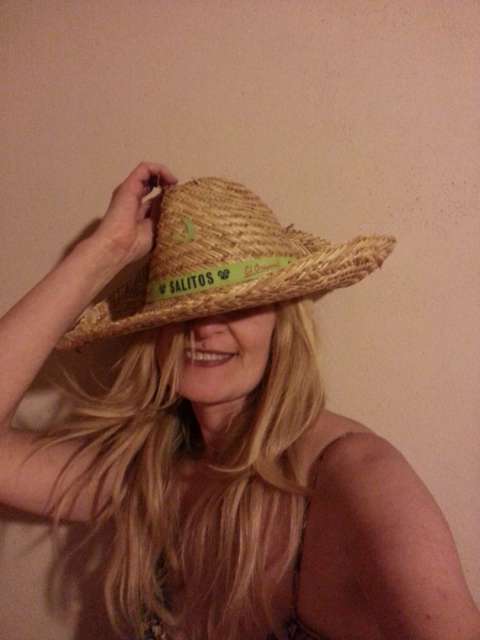SKY OVER BOTSWANA
Publicatu: 03.12.2016
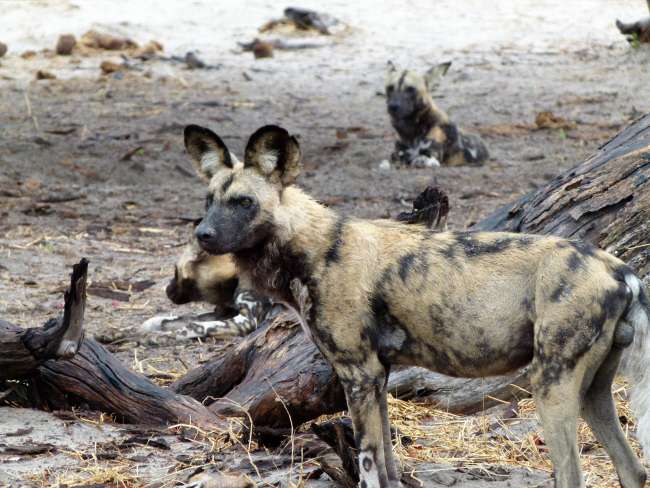
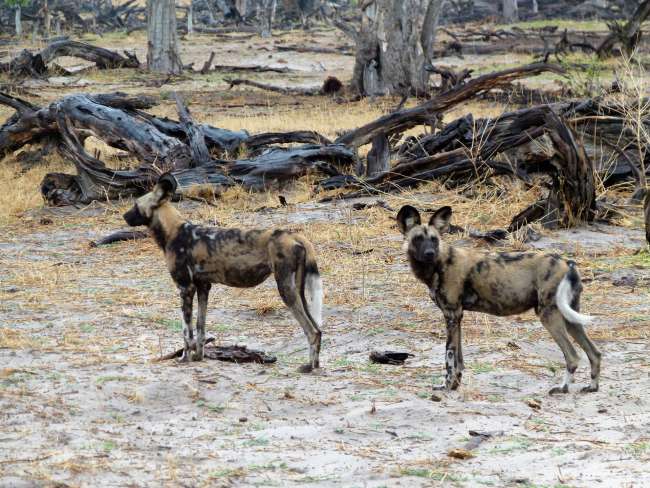
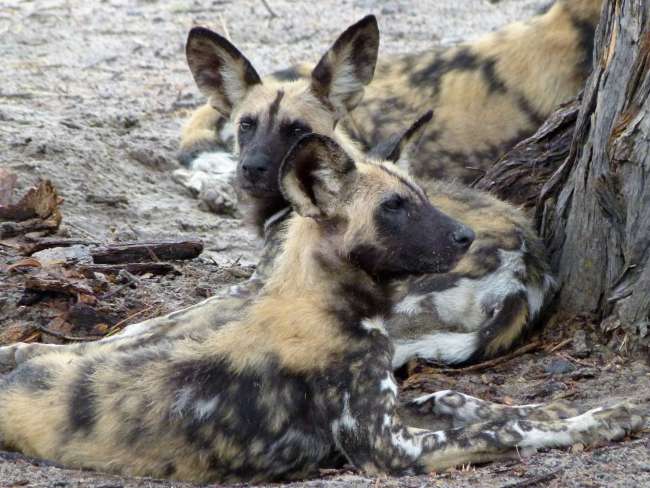
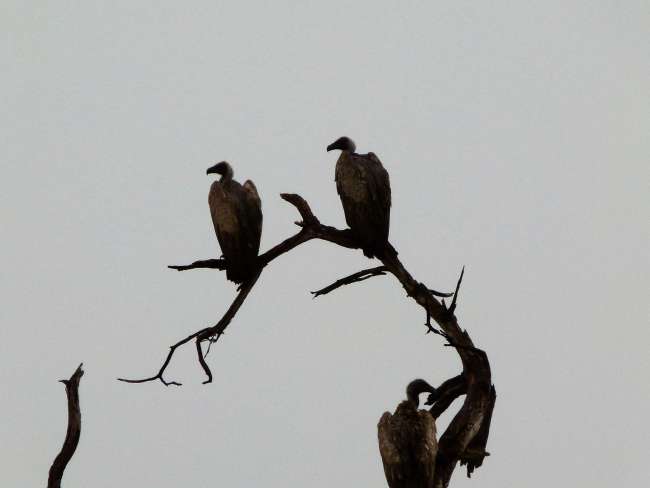
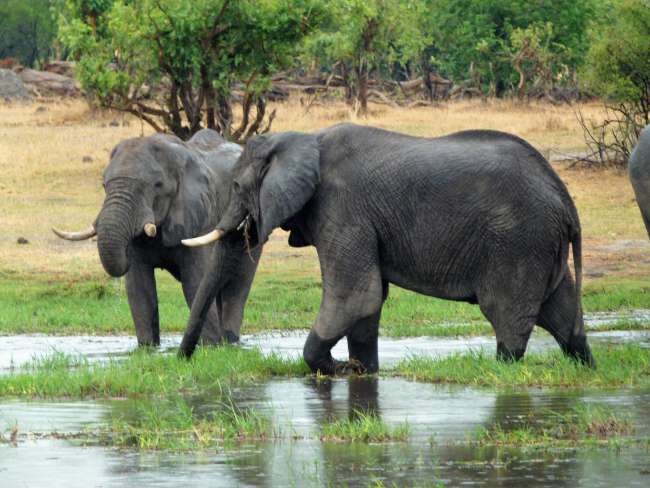
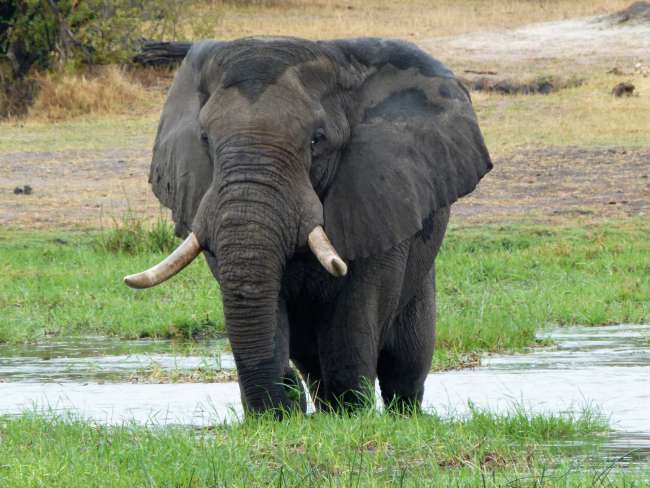
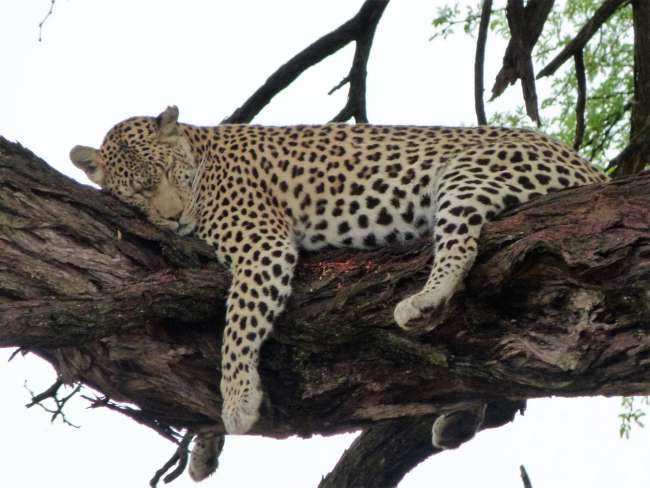
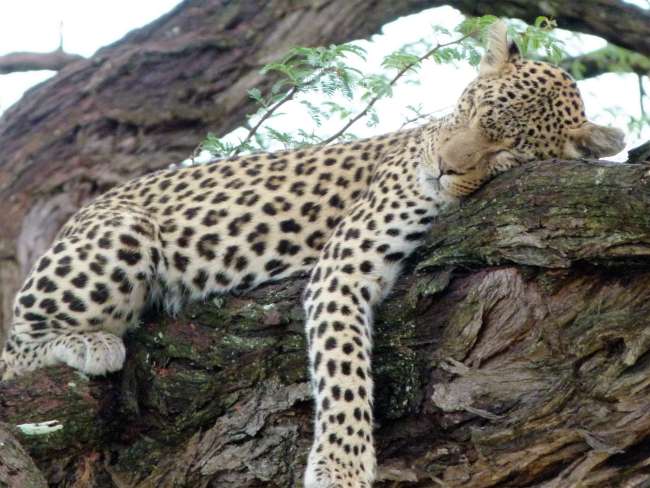
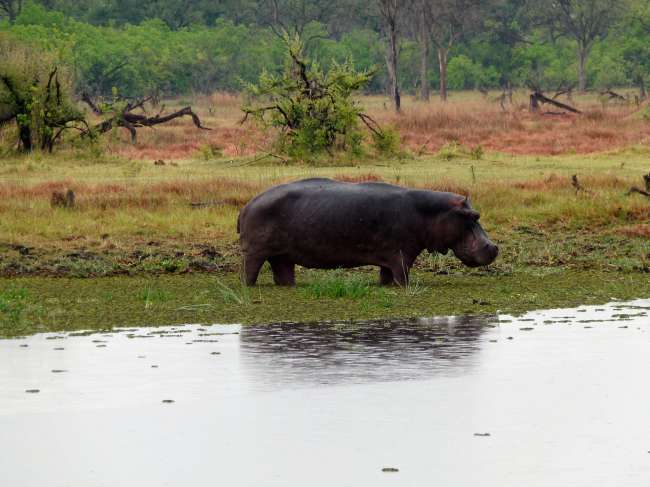
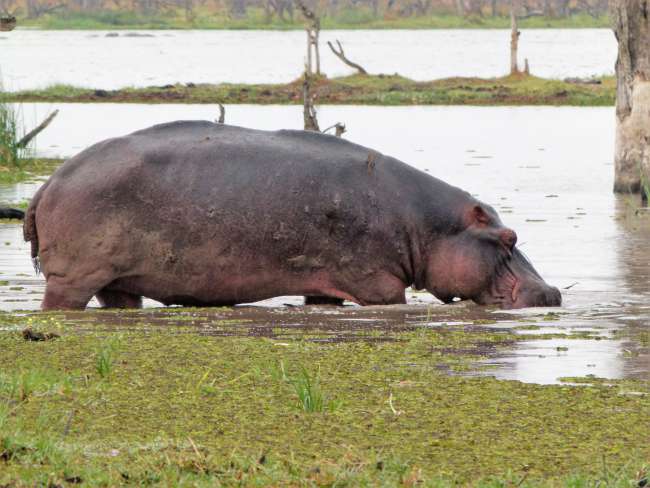
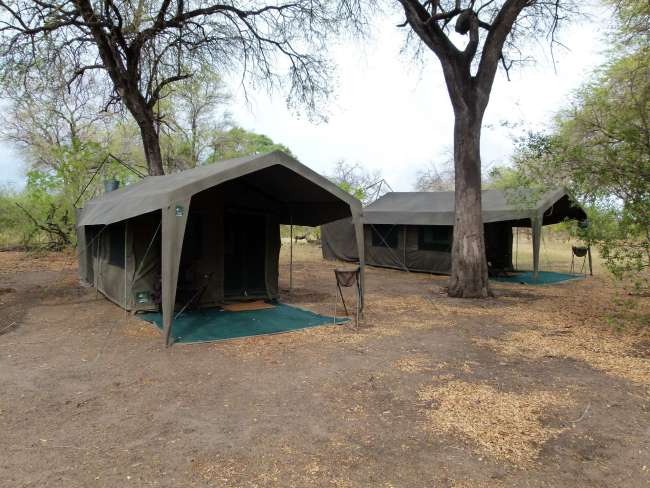
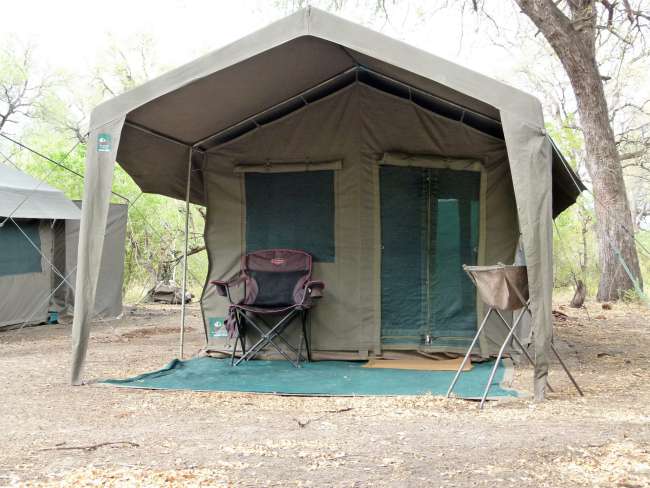
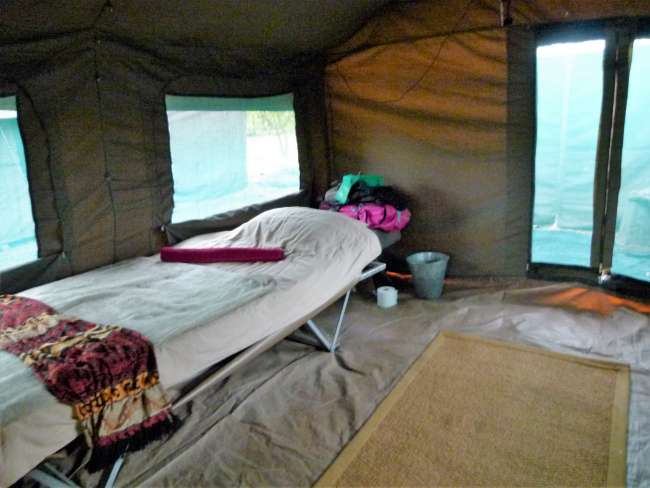
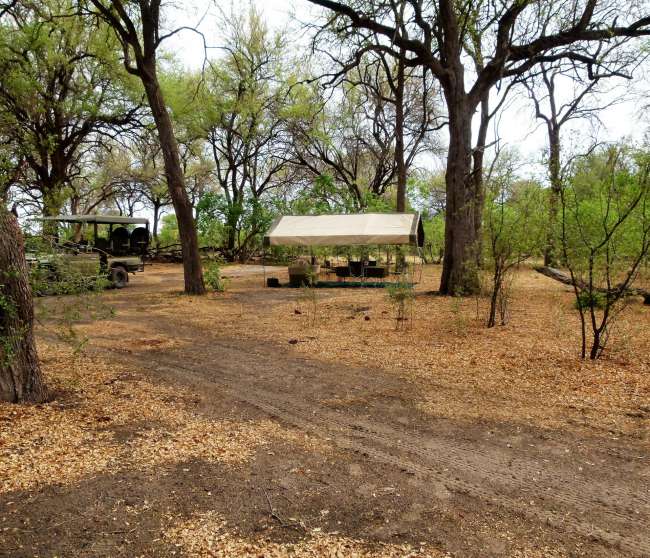
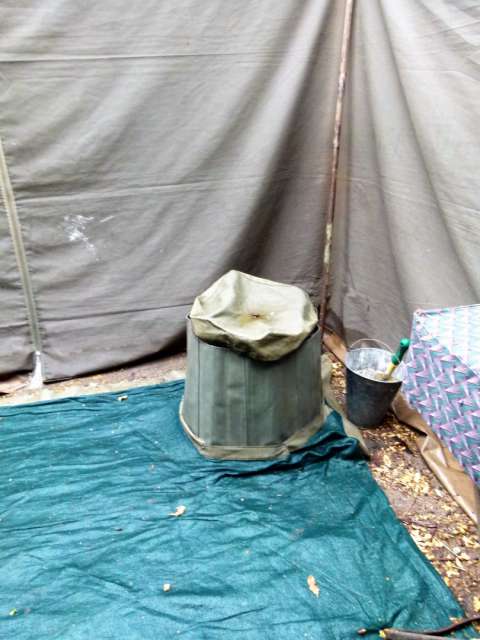
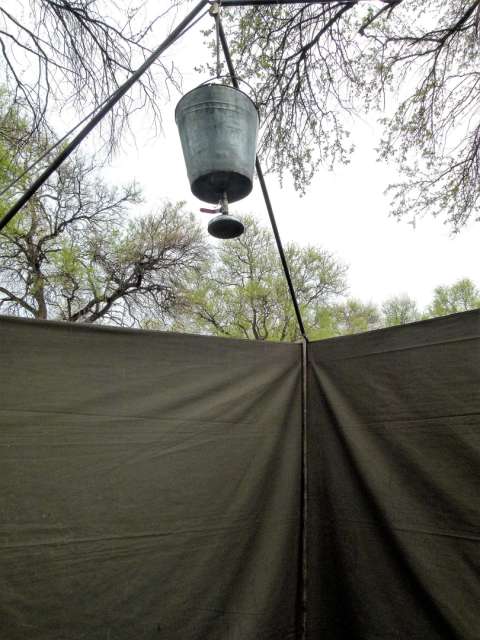
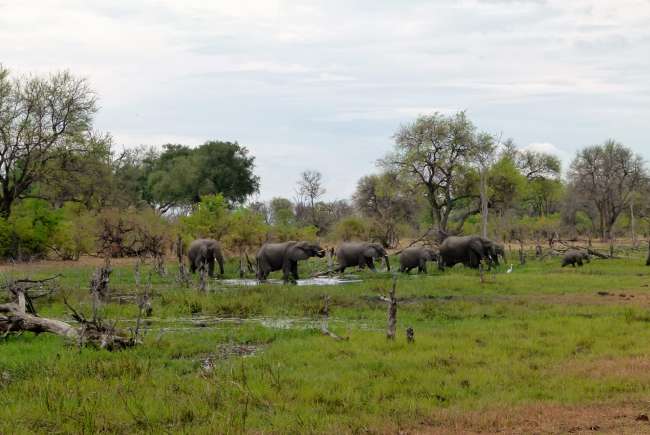
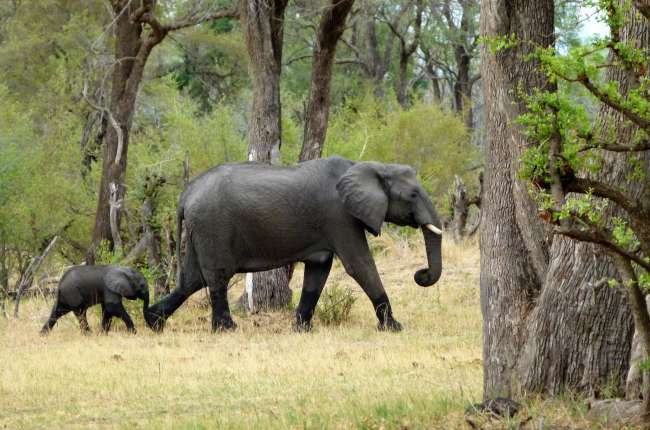
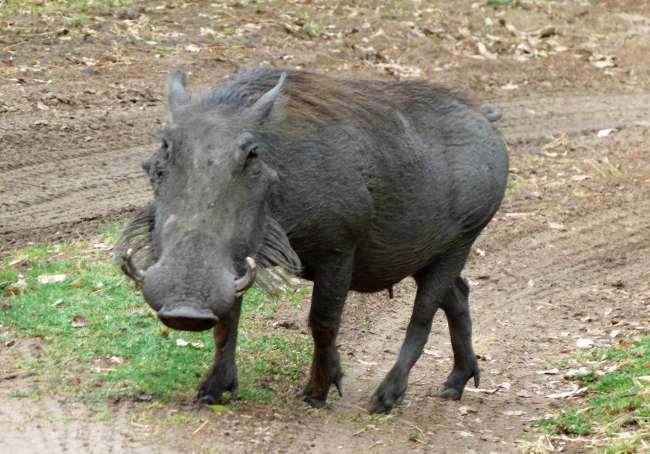
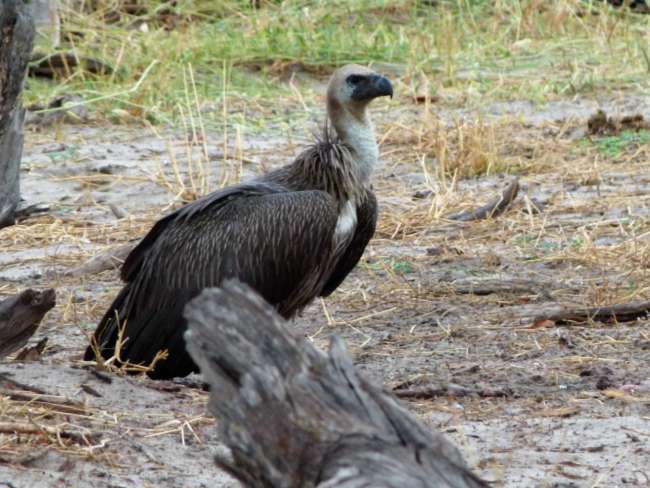
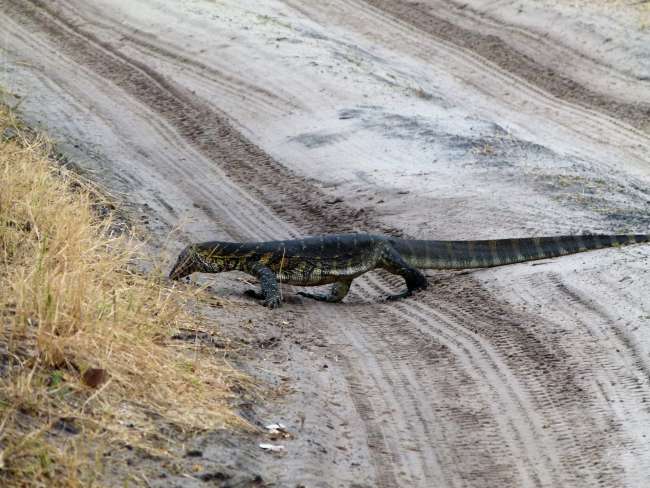
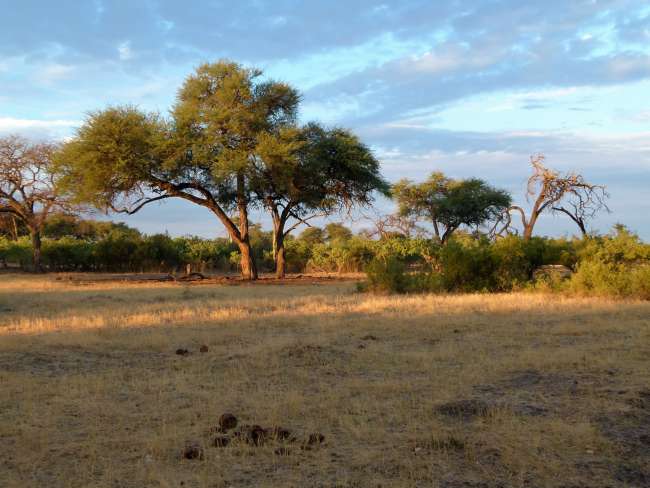
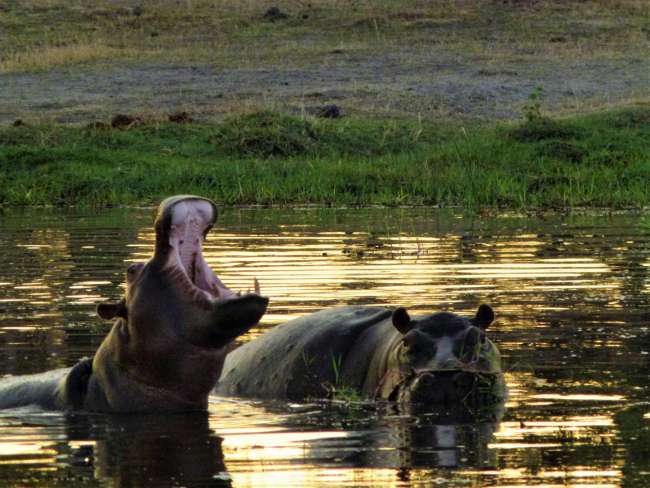
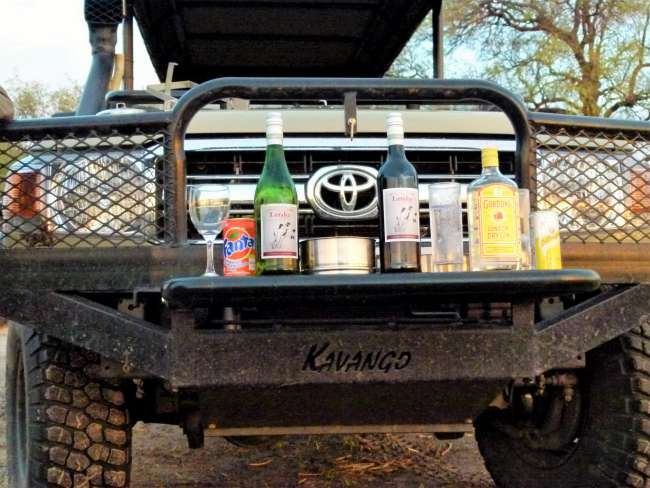
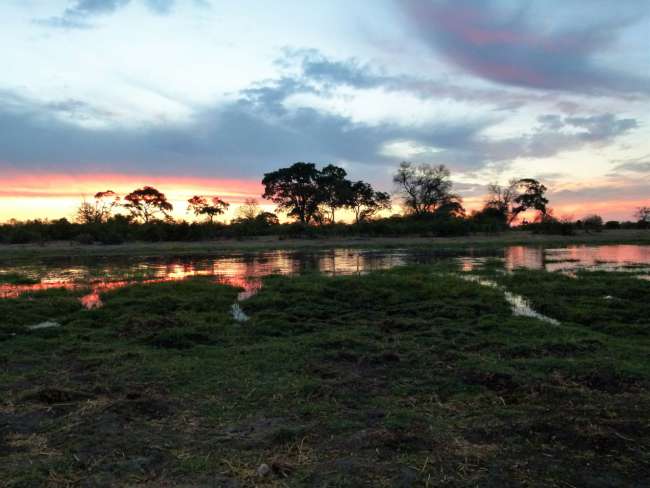
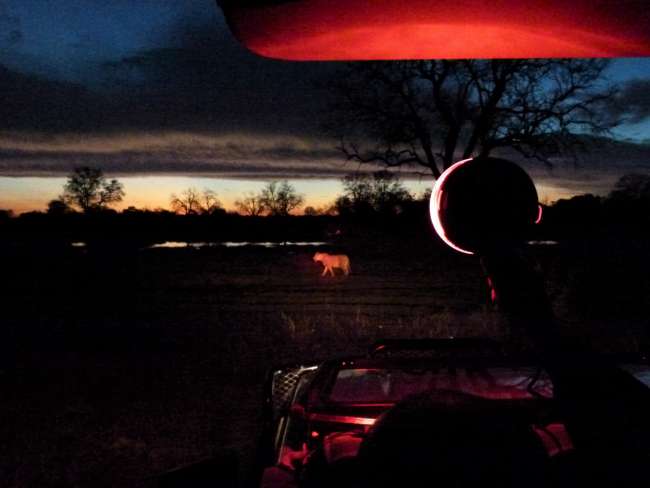
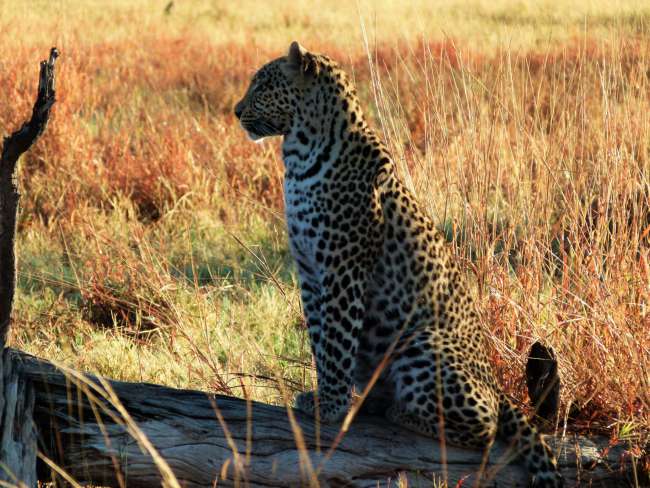
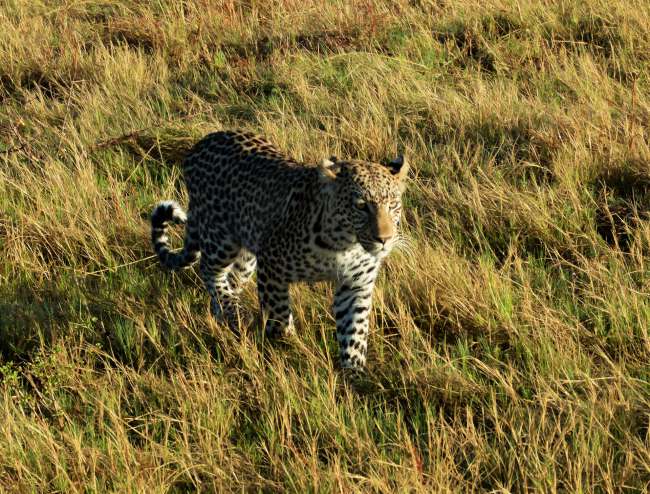
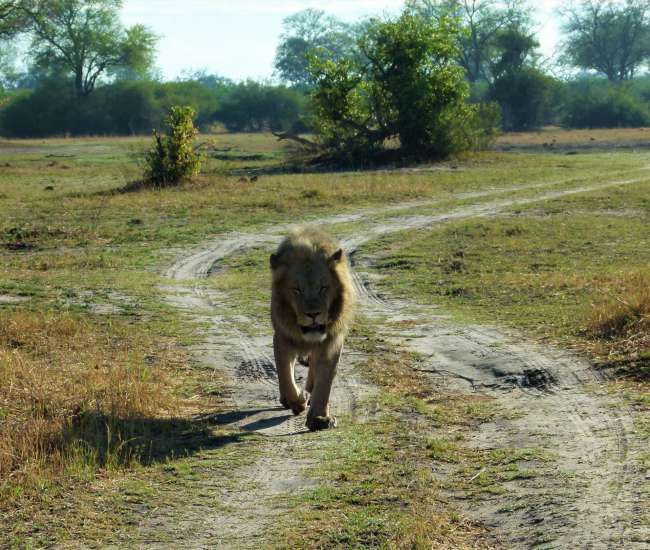
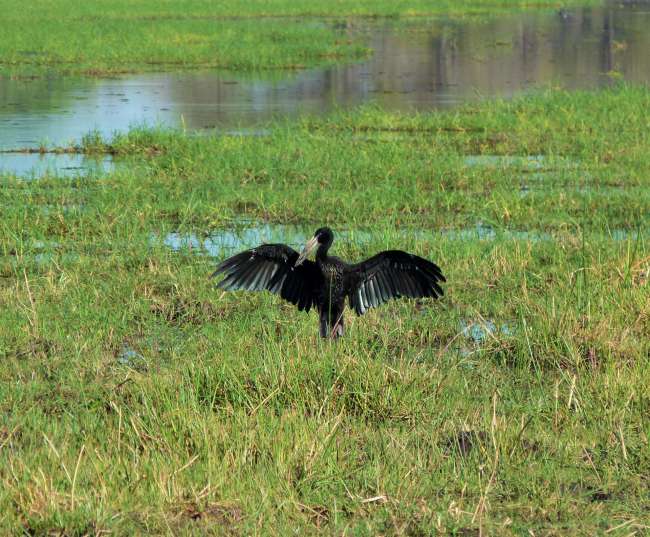
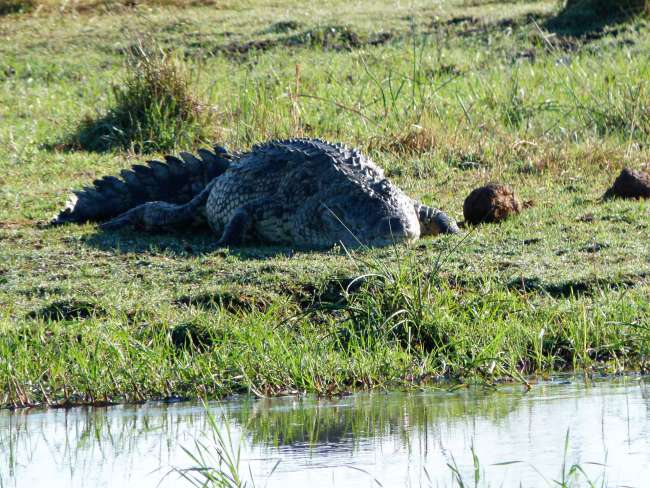
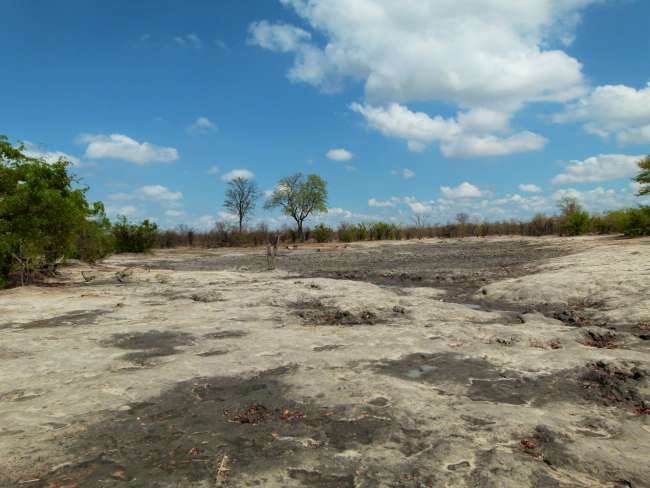
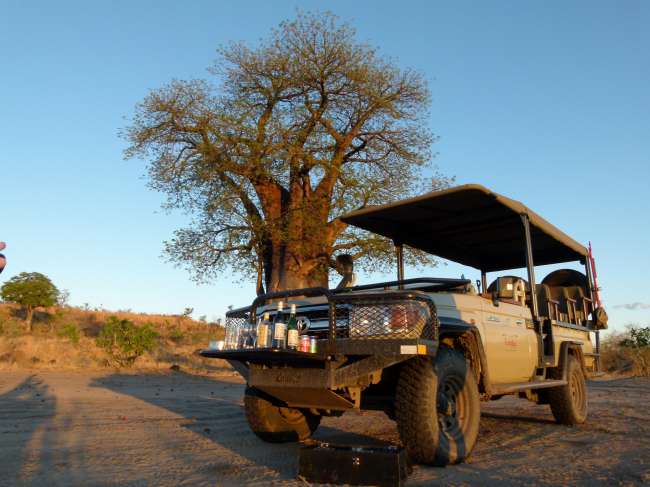
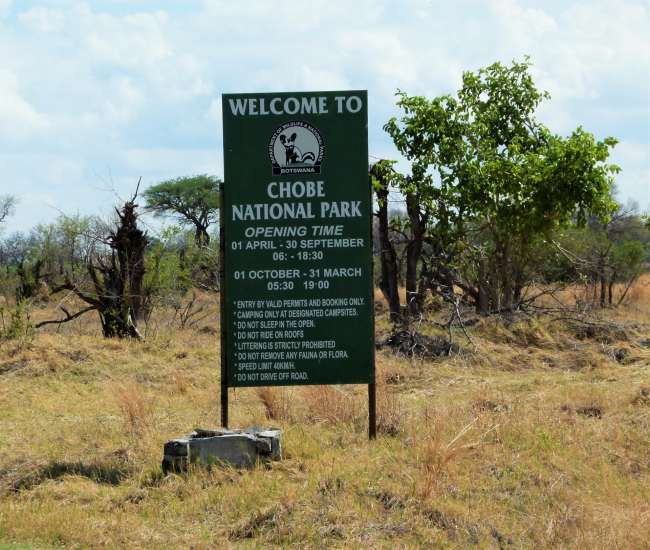
Abbonate à Newsletter
Botswana - it is vastness, the mystical Kalahari, legendary Makgadikgadi Pans and a green jewel in this otherwise dry region - the Okavango Delta.
In an open safari Land Rover from Maun to the Khwai Community Concession and back through Savuti to the elephant paradise Chobe National Park.
A journey filled with many adventures, hundreds of kilometers on deep sand tracks, incredible wildlife encounters, picturesque baobabs, and days with hardly any human encounters.
Botswana is a true gem in Africa! Here, elephants are not nearly extinct, but rather numerous, roaming through our camp and past our tent at night. Botswana is a country away from unrest and insecurity, where we truly felt very safe. It is a land of colors and contrasts: white salt pans, blue skies, red earth.
Day 1 - Khwai, here we come / sleepwalking hyenas:
Our journey begins at the small airport in Maun. The little town is the hub for all travelers to the Okavango Delta and the northern national parks. Here, we meet our guide, Shaka, who immediately leads us to our mode of transportation for the next few days: a real safari vehicle, an open Toyota Land Cruiser, awaits us. Equipped with everything we need - 9 comfortable seats with perfect 360-degree views, a huge, already well-stocked cooler, charging tower with plugs and USB ports for phones, batteries, and cameras, rain capes (do we need them?), and an emergency kit. The journey begins, we set off, leaving civilization behind - where our journey leads us, there is no electricity and no supply options. That's why our safari team includes 3 boys, who have already driven ahead with an additional vehicle loaded with our tents and all the provisions for the next few days.
We initially zoom along a tarred road towards the Khwai Community Concession, near the Moremi Game Reserve. Shaka has already announced it - we can expect about 4 hours of driving time and a bumpy ride.
Along the way, we enjoy the first cold drinks from our cooler in the heat and drive past small villages and equally interesting obstacles: a few donkeys stubbornly stand in the middle of the road, cattle and goats suddenly run onto the road, children play on the roadside and wave happily at us. This hustle and bustle brings a smile to our faces - driving here is so different from German autobahns... The paved road soon gives way to a gravel track. In fact, we are shaken tremendously, despite the now very low driving speed. But we don't mind, the three of us enjoy the warm sun and the anticipation of our first camp.
Finally, the moment has come - it's already dusk when we reach the Khwai Community Concession and drive towards our campsite. We spot the first elephants and springboks. The vegetation becomes greener and denser, and the road becomes a sandy track - now we get that off-road feeling. Shaka calmly tackles all the challenges and skillfully maneuvers through the deepest ruts with the 4x4. So this is what it's like to drive on deep sand.
It's finally time and almost dark. We reach our camp - a cozy campfire is already burning. The boys have already set up our tents, amidst the bushes under the trees - we have arrived and immediately feel transported back to pioneer times: each of us has our own tent, spaced generously apart. The tents look comfortable. We settle in and now see our living quarters for the first time: a small washing area with a mirror outside the tent, a field bed, a small table, and a clothesline all around. Excitedly, we unzip the back of our tents and see our bathroom for the first time - an outdoor bucket shower and the bush toilet! Under the open sky. In the middle of the wilderness, accompanied by the sounds of nature - we really like it.
We freshen up quickly and then head over to our 'restaurant' - an open tent pavilion with a large dining table. Our safari chef has already prepared a delicious dinner and opens the small buffet.
Our first dinner under the starry sky of Botswana! The cicadas give a concert, and a lion roars nearby. At the campfire, we discuss our plans for the next day when Shaka suddenly points towards a tree - a huge hyena can be seen in silhouette. We are very quiet and watch as it moves back and forth between the trees and bushes of our camp. Eventually, it disappears as quietly as it came. We are happy - this is Africa!
It's time - we say goodbye and fall into a deep sleep on the thick and comfortable mattress of our camp beds. It will be a peaceful night in the bush - or not? A crashing noise and a strange panting startle me. Am I awake or dreaming? Through the mosquito net window, I see movements right in front of my tent, then I hear a crash and the light outside changes. I gather my courage and go very close to the front entrance of my tent. Now, only the zippered mosquito net door separates me from what I see there: a huge hyena stands before me, it has knocked down my solar lamp and now seems to be considering what to do next. Eye to eye with a hyena - I quickly turn off my headlamp so as not to provoke it. Slowly, I walk back towards my bed and wait.... Then suddenly, my visitor turns around and runs back into the bush... Good night
Day 2 - Rain drive and invasion of flying termites
Our day starts at 5 o'clock - we are awakened not only by our guide but also by a familiar sound: rain is pounding on our tents! Puddles have already formed outside. However, it is warm and we decide to spend our day with a game drive. We had actually planned to do a mokoro tour, drifting through the river channels in a traditional canoe. Unfortunately, the heavy rain does not allow it.
After breakfast and a strong coffee prepared over glowing coals, Shaka hands us huge rain capes and we set off in our Land Rover to explore the Khwai region. Shaka tells us that today will not be a good day for many wildlife sightings. And he is right. On our drive through muddy and watery holes (which brings us great fun), we see a lot of the now very green bush, but only a few animals show themselves. We only spot a few baboons, hippos, and two elephants. Nevertheless, we enjoy this impressive landscape and the off-road driving - we feel a bit like Crocodile Dundee.
The rain has stopped and darkness sets in - our night game drive begins. Since the vehicle is not equipped with roof spotlights, we use a huge handheld spotlight to illuminate the area during the drive, searching for nocturnal animals. We find some and observe a few lions by the river, we see the hippos with their babies, and a few bush babies too. At night, we perceive the drive very differently - when we stop, we are surrounded by countless sounds that we cannot all identify.
Back at camp, we set up our table for dinner. The food is ready on the table and we switch on our LED lamps. But what's this? After a few seconds, we can no longer see what's on our plates. It's not the darkness, but rather what is falling onto the table, the food, and over us in swarms. They are large, have white wings, and they are everywhere. We can't even think about eating. Where there is light, they are also there: flying termites. It's mating season. The light attracts the females with their large wings, and the males follow, resulting in tandem flights. They land everywhere. During mating, the termites lose their wings and return to the ground. We have never seen anything like this, and our guide, Shaka, says that he rarely experiences such an invasion.
We decide to serve fresh food again and completely avoid light, as this is the only way we can eat without termites. It will be a dinner in the dark - very adventurous, as it is pitch black. Interestingly, the food tastes even more intense, and we eat much slower. We are in the bush - this is Africa!
This night is calm, no hyena visits. Sometimes there is rustling, but the passing elephants reassure us rather than making us anxious. We sleep like logs.
Day 3: From Khwai to Savuti - following the tracks of wild animals
Today, we have another long drive ahead - actually, it is a game drive throughout the day to our next camp. Again, it means waking up at 5 o'clock, and after a quick breakfast, we set off. We venture into the bush while the boys dismantle our camp.
Today, the sun is shining again - it will be a hot day. Shortly after starting, we almost all spot it at the same time: a leopard!
The majestic and beautiful animal sits motionless on a tree trunk, observing the grazing springboks in the sun. We drive up to about 5/6 meters away and watch the leopard. We manage to capture close-up shots and can study every movement. Anyone who has seen these animals from such close proximity knows that it is a unique encounter.
Happy, we continue our drive - passing numerous elephants, kudus, and crocodiles. On the riverbank, two incredibly huge crocodiles bask in the sun, while right next to them, fish eagles hunt. A baboon family collects the numerous insects from the ground, and the younger baboons chase each other up and down the trees. Oh, how beautiful Africa is!
Soon, we see our next highlight: the rare African wild dogs. We drive straight towards the large group. The wild dogs have an incredibly colorful pattern, which is perfectly adapted to the colors of the bush. The group has some young ones with them, and they bask in the sun or play with each other. Beautiful to watch - they are not at all shy. One of the animals comes wagging its tail directly to our vehicle - we are thrilled.
Then we continue - we drive on small paths through rugged terrain, jumping over rocks and especially through deep sand. While driving on the sandy track, Shaka spots the tracks of another leopard from the Land Rover. We follow the tracks. Eventually, the trail leads us to a large tree. We look up and there it is, the leopard! It is fast asleep on a branch, legs hanging down, occasionally blinking. A perfect subject.
After observing this leopard extensively, we continue our journey - along the way, we encounter a large monitor lizard, which emerges from the water and runs across the sandy track. The vegetation changes and we have left the Khwai region behind, venturing hundreds of kilometers on deep sand tracks and over rough speed bumps. There is no human soul in sight. Slowly, we approach Savuti, the land of elephants. In the rainy season, the region is very difficult to traverse. But wildflower carpets, baby animals, the green landscape, and the solitude are worth a little mud on our ankles. Up to 25,000 zebras and wildebeests migrate from Linyanti to the Mababe region at the beginning of the rainy season in November-December.
We see a lot of zebras in the Savuti Marsh - the marsh is a
large wetland that changes over the years and seasons. Finally, we reach our new camp, located right next to the dried-up Savuti Channel. Since we arrive around noon, we have 4 hours to shower and relax before going on a short sundowner drive. We quickly get used to our bucket showers, and it's actually quite fun to live so simply and close to nature. Completely without electricity, without mobile reception, just us among ourselves. It is wonderfully quiet and relaxing to sit there, listen to the sounds, read a book, or doze off.
The boys have baked a chocolate cake over the campfire, and we have our tea time. After being refreshed, we quickly jump back into the Land Rover and head out into the wilderness again. Shaka has chosen an idyllic waterhole for our sundowner - it is teeming with hippos, which make incredibly loud noises. With water, gin and tonic, and wine, we let this exciting day come to an end. Back at camp, we enjoy our dinner and then sit together under the incredible starry sky by the campfire for an hour before falling into our beds.
Day 4 - we explore Savuti and the escape from the Black Mamba
Today, we are allowed to sleep until 5:30, quite luxurious. During breakfast, we already feel the intense heat and humidity. Even during the drive, there is no relief in sight - even the breeze feels hot. We doze off for a moment until one of us excitedly shouts: Look, something strange is climbing the tree. Using binoculars, Shaka determines that it is a leopard and it has a dead impala between its teeth. It is a rare stroke of luck. We approach very, very slowly, occasionally having to dodge some obstacles. The leopard climbs very quickly despite the large weight it carries. Eventually, we are close enough to see that the big cat has already hung its prey over a branch and is now descending again. We are impressed by the strength and agility of the leopard. The sight of the dead impala high up on the branch is a bit surreal, but this is Africa!
Then we get back on the track, and not long after, we see isolated turtles by the roadside - none of us expected turtles. Just as we are about to continue, we see a snake slithering through the grass. Our guide says we can get out and cautiously approach the snake before it disappears into a small bush. We move slowly a few meters closer until we can see that it is a cobra, although still small. It moves forward with a shiny slither. While we are still fascinated, our guide suddenly whispers urgently, 'Move, move, don't turn around and hurry up, be calm and be careful, straight to the vehicle, get in fast.' Suddenly, we have a very bad feeling, but we can't hear anything and in front of us, we see nothing but the cobra. So we run, without looking back, quickly to the vehicle, and jump in. Then we look at the spot where we were standing - there we see another snake! It is very dark and moves incredibly fast and aggressively. Shaka is already in the Land Rover and simply says: Black Mamba! We remain very quiet and somewhat shocked. The Black Mamba is not only the longest snake in Africa but also one of the most dangerous and lethal snakes in the world.
Our guide is speechless - what luck he had noticed the approaching Mamba with his trained eye from a distance. We will not forget this rather unpleasant encounter for a long time, and the shock lingers in our minds until evening. This too is Africa!
Day 5: Farewell to Savuti - welcome Chobe
Our last day of this adventure safari begins - and we don't really feel like returning to civilization. Ahead of us lies another long drive through our beloved deep sand tracks towards Kasane.
Today, we mainly see African birds and occasional elephants. This gives us the opportunity to ponder a bit and review the past few days. For lunch, we stop under shady trees and soon realize - there are ants everywhere. So we change our location again, and instead of ants, a few elephants graze nearby. We are engrossed in our meal when suddenly we hear a loud trumpet behind us. We turn around and find ourselves face to face with an elephant, only a few meters away. The young bull has separated from the group and does not seem to like that we are having our lunch here. He stomps his foot on the ground and spreads his ears wide. He repeatedly shakes his head, takes a few steps forward, and then back. He glares at us angrily. Our guide knows - we must leave this place quickly, otherwise it will become uncomfortable. We can do without the anger of the young elephant and quickly pack up. As we drive away, the elephant lifts its trunk once more and then returns to its group.
After a few hours, we reach Kachikau, where the tarred road begins again, and we continue to Kasane. After the days in the remote and quiet bush, we feel a bit overwhelmed by the people and the traffic on the road. It's a completely different world. Our lodge for the next few days is on the outskirts of Kasane, and compared to our small cozy tents, it is a luxury palace, an artificial oasis. We are not sure yet if we want to get used to it. We say a melancholic goodbye to our great time in the seclusion of the wilderness of Botswana. The thought of returning somehow lightens the mood, knowing that we will definitely return. To Botswana, Zambia, or Zimbabwe, to South Africa or Namibia. Definitely back to nature - this is Africa!
Abbonate à Newsletter
Rispondi
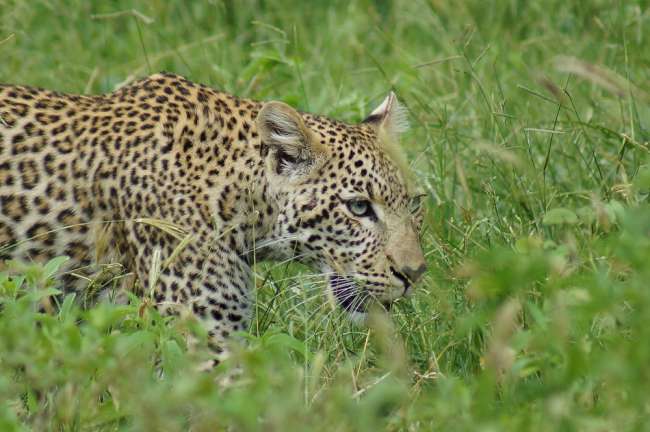
Rapporti di viaghju Botswana

